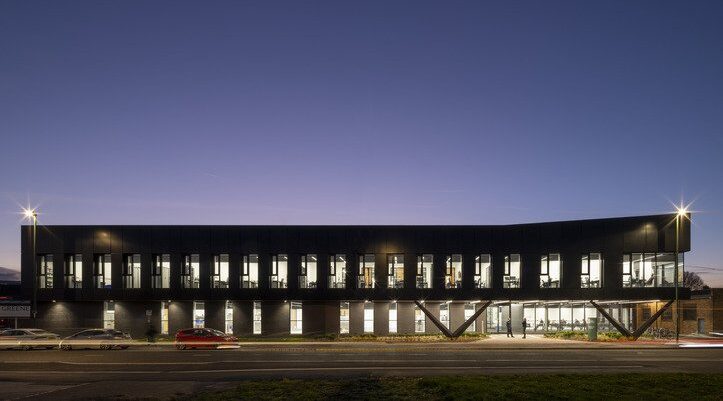Location: Midlands
The Power Electronics, Machines and Control Group (PEMC) at the University of Nottingham is one of the largest groups of its kind worldwide. With over 170 active researchers and over 5000 square metres of dedicated research and development space for power electronics, machines and drives (PEMD), the centre hosts the UK-EAPF (UK Electrification of Aerospace Propulsion Facility) and the Future Factory for High Performance Electrical Machines.
PEMC research ranges from basic technology investigation to fully engineered advanced concept demonstrators, carried out in experimental facilities that allow realistic practical validation of novel components and systems. The Group has undergone a significant period of recent growth and now includes 22 academics, 15 engineering technicians and approximately 130 PhD students and post-doctoral research fellows, supported by an active research grant portfolio of around £35m, derived from a range of sources including EPSRC, Horizon 2020, ATI, APC, the Department for Business, Energy and Industrial Strategy and Industry and local funds. The Group hosted the Hub of the EPSRC Centre for Power Electronics and leads the Advanced Propulsion Centre UK (APC) thematic spoke for Power Electronics. It is a core partner in both Systems and Airframe Integrated Technology Demonstrators (ITDs) of the EU Clean Sky 2 programme and has long-term strategic partnerships with several industrial organisations.

Key strengths and unique capabilities
- High power density electrical machines
- Fault-tolerance and reliability
- Advanced electrical machine cooling
- Advanced electromagnetic topologies
- High temperature materials
- Rare-earth free topologies.
- Multi-level power converters
- Matrix converters
- Wide bandgap topologies
- Bonding and attachment technologies
- Environmental cycling (real aerospace conditions).
- Manufacturing effects on magnetic steel properties
- Loss characterisation and measurement
- Winding insulation degradation and life models
- High voltage insulation systems.
- Advanced control including sensorless and predictive control
- Multi-phase and modular configurations
- Diagnostics and prognostics
- Power quality and weight optimisation
- Impact of faults, propagation, bus re-figuration, load dispatching.
- Drivetrain design optimisation
- Physical integration
- Thermal management.
The Driving the Electric Revolution Industrialisation Centre – Midlands is based at Nottingham PEMC, Jubilee Campus. The Centre provides high frequency coil manufacturing and magnetic test characterisation capabilities to develop and manufacture electrical machines, operating at higher frequencies.
Equipment
- Needle winders for concentrated and distributed windings
- Edgewise coils manufacturing
- Continuous hairpin winding facility
- Variable cross-section hairpin line
- Instrumented and programmable Vacuum Pressure Impregnation (VPI) facility
- Advance prototyping workshop able to wind, manufacture and assemble electrical machines from W to MW
- Characterisation of soft and hard magnetic materials under real drive operating conditions. Measurements can be taken for a range of thermal, electrical and mechanical conditions, allowing replication of real operating conditions. Key features include up to 30kHz fundamental/100kHz switching frequencies, -40˚C to 300˚C temperature range, tests under tension and compression up to 3kN. The facility also includes a range of rotational power loss testers.
- Packaging of semiconductors including electro/electroless plating, automated die bonding, sintering, diffusion-soldering and Cu-wire bonding
- Characterisation facilities include static and dynamic electrical testing, transient thermal impedance measurement, and thermal interface characterisation.
- Characterisation facilities include dedicated non-destructive evaluation via 3D x-ray computed tomography and scanning acoustic microscopy
- SEM, nano-indentation, Dantec Dynamics Laser Doppler Vibrometry System with National Instruments data acquisition hardware and software.
- High power dynamometers up to 5MW
- Variable AC and DC voltage supplies up to 4MW and 3kV
- Dynamometers for electric vehicle (EV) and rail traction, aerospace and marine propulsion and high performance industrial drives
- Engine and power system emulators
- Environmental testing including altitude.

